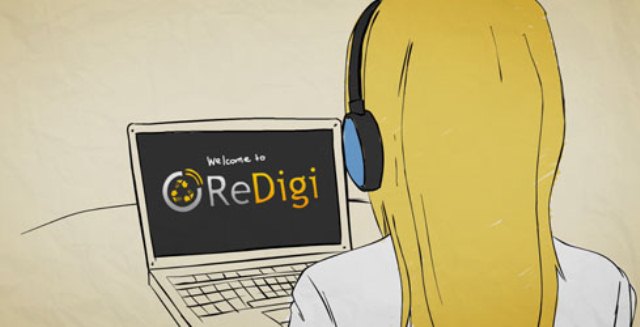 There have been endless consequences from the digitalization of the music industry. The technology has changed, and with it so has the business model, as well as artists’ production methods. There have been benefits and there have been consequences for this market—but one clear winner has been consumers.
There have been endless consequences from the digitalization of the music industry. The technology has changed, and with it so has the business model, as well as artists’ production methods. There have been benefits and there have been consequences for this market—but one clear winner has been consumers.
Being able to pick and choose individual titles instead of entire CDs is more affordable, and subscription models with social features have made discovery and access easier. But not having a tangible way to own your music does have one glaring downfall: Resale isn’t an option. Before the digital revolution of music, you would buy and sell used CDs or <gasp> even tapes and records. You could trade and upgrade your music collection without your former favorites sitting around collecting dust. Now while your catalogue isn’t taking up physical space, your options are to let it take up space on your system or delete perfectly good tunes you paid for.
But ReDigi thinks it has an answer. The startup, which calls itself the first online marketplace for used digital music (or the first legal one), launches tomorrow. ReDigi puts it in simple terms, telling us users can “sell their legally acquired digital music files, and buy used digital music from others at a fraction of the price currently available on iTunes.”
The team behind ReDigi is certain that this business model will solve problems for consumers as well as music professionals. Artists and labels will be compensated for the profits from resale of their music.
ReDigi says it approves your tracks, making sure they were acquired legally, and then directs you to the ReDigi Music Manager. You drag and drop your old music to add to the ReDigi icon and add it to the site’s database for someone else’s purchase, where you’ll see a fraction of that money. This should be clear but if it isn’t: You are giving up ownership to that title, not sharing it. You will no longer have access to the music files you sell through ReDigi.
The legal terms and verification system behind ReDigi are obviously important: There is an abundance of pirated music out there, and reselling it for a profit would doubly hurt the music industry. But ReDigi CTO Larry Rudolph assures us the site takes the necessary steps to make sure only paid for music gets through. “It is a bit like CSI: ReDigi. In addition to the obvious, there are many subtle clues that determine resale eligibility of each track. We are extremely cautious and our technology is incredibly thorough in determining the eligibility of a music file.”
The site says it has more than 11 million songs to choose from, a number that will grow based on how many users it can get (it’s a free program). If you can’t find a used song for the cheaper price and don’t want to wait, you will also have the option to buy it new.
So how do you actually make money? ReDigi compensates you for each upload (regardless of if it sells) with coupons to be used on the site to purchase music (songs are regularly $0.79, and the credits for uploading knocks that down further). You get more credits if your content ends up selling. ReDigi also offers cloud storage for your acquired music, and has an enabled player so you can browse and listen to music before purchase.
It’s high time there’s an option for swapping your music without watching your library collect digital dust. But be aware, this isn’t some way to make a quick buck: It’s more of a trade operation than anything else. Still, it’s a necessary one that takes all the necessary legal steps to make sure that all the involved parties—buyers, sellers, artists, labels—are taken into account.


